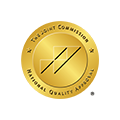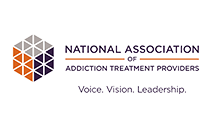Drug and Alcohol Treatment in Ohio
Intensive Outpatient Program
Individual Therapy
Weekly one-on-one sessions with a licensed therapist
Intensive Structure
Structured treatment programs during the day, providing a supportive environment similar to inpatient care but allowing individuals more flexibility in the evenings.
Holistic Approach
Holistic therapies such as yoga, mindfulness meditation, art therapy, and recreational activities to promote overall well-being and address the mind-body connection.

Group Therapy
Tailored to address addiction and underlying mental health issues.
Medical Supervision
Staffed with medical professionals who monitor individuals' health and manage medications to address withdrawal symptoms or co-occurring medical conditions.
Transition Support
Assist individuals in transitioning to lower levels of care or outpatient treatment, providing aftercare planning and ongoing support to maintain sobriety and prevent relapse.
What Is An Intensive Outpatient Program?
An Overview of IOP
Substance abuse can devastate both the life of the person ensnared in its ugly web, plus those around them. Addiction to drugs and alcohol is a progressive illness. The disease of addiction becomes increasingly more debilitating over time. Addiction to drugs and alcohol can end in the ultimate consequence, and ultimately death. Frequently, the addict or alcoholic have lost hope. As hard as we try, we simply cannot stay clean and sober.
We are being consumed by a sickness that continually tries to convince us that we are not sick, everyone else is. However, there is hope. One way to begin to untangle our lives ensnared in an addiction is through a treatment program. Just as there are various levels of substance abuse and chemical dependency, there are different levels of treatment. Two approaches to addiction treatment are outpatient programs vs. inpatient programs.
The difference between the two involves where you live during treatment. Outpatient is just that, a treatment program where you do not live at a residential treatment facility. There are also varying degrees of intensity for outpatient treatment. There is the traditional first stage outpatient treatment OP 1.0. While this may be sufficient to address milder situations, often a more rigorous plan is required. Remember, the ultimate consequence of alcoholism could erase any second chances at recovery.
Intensive outpatient treatment (IOP)is exactly as the name implies, intense. IOP addiction treatment programs will commonly require 10 to 20 hours of commitment per week. These hours are spread out across a three or four-day week. Intensive outpatient treatment programs level of intensity falls somewhere between traditional OP 1.0 and residential inpatient programs. The level of commitment for IOPs is closer to inpatient. It is often a stepping stone for individuals who have completed a residential program. It is not uncommon for those taking part in intensive outpatient programs to live in a sober living environment. This can include people who didn’t begin in a residential setting.
Frequently, there will be a psychiatric component to an IOP. Intensive programs frequently begin with a one-hour psychiatric session per week blended with another hour of one-on-one counseling with a recovery specialist. Nearly every treatment program has a group component as well. Intensive outpatient treatment programs usually require group sessions two to three days per week. These sessions can range in length from one hour to three hours. Beyond the scheduled sessions conducted at an outpatient facility, it is strongly recommended that you participate in recovery meetings. Traditional outpatient programs usually set this requirement as optional. However, IOPs frequently require a set number of meetings per week. They often ask for documentation of attendance. This isn’t a punitive tactic, but a proven and important part of successful recovery.
In summary, intensive outpatient programs for addiction recovery require a heavy weekly responsibility. You can expect anywhere from 10 to 20 hours of commitment. This may seem like a lot of time. However, let’s not forget the potential consequences of continuing the downward spiral our lives have been traveling. When faced with the option of living or dying from our addiction, the commitment begins to take on a very different feel.
If you’re overwhelmed in a life of substance abuse, everything may seem hopeless. You’re not alone. There is help available if we’ll only ask. Successful recovery invariably involves with changing our mindset. Treatment programs are designed to help begin that process. Outpatient treatment is one choice. All decisions about choosing an addiction treatment program should be made with guidance of a professional recovery specialist. Unfortunately, we must impress upon you the possible consequences of a wrong decision. If you think you may have a problem with substance abuse, ask for help. It takes just one phone call to begin a wonderful journey in recovery. You will immediately find out that you’re not alone and will never have to travel this journey by yourself. Recovery begins with treatment, and your treatment can start today. Remember, tomorrow might be too late.
- Individual Counseling
- Group Therapy
- Medical Supervision
- Skill Building
- Holistic Approach
- Transition Support
Most Major Health Insurance Accepted
We work with most major health insurance carriers. Often times insurance can cover up to 100% of your treatment costs. Contact us today to get started. Verification of benefits can be done right away. Don’t worry if you don’t see your health insurance listed here. We can help with many different plans.
- BCBS
- Aetna
- Anthem
- Tricare
Today Is The Day
You Never Have To Feel This Way Ever Again
One simple call to our caring and compassionate staff, and you can be on your way to a lifetime of freedom and recovery

As Seen On Hulu
Seacrest Recovery Center is The Featured Drug & Alcohol Rehab on Jelly Roll's Save Me Documentary on Hulu Originals
Trusted Treatment Provider
Certified and Accredited Both Locally and Nationwide



Our Clients Believe In Us
And We Believe In Them!
Here Is What They Are Saying
About Seacrest Recovery
Your First Step To Recovery
Our Locations

Columbus OH

Eatontown NJ

Willard OH

Cincinnati OH
More About An Intensive Outpatient Program?
Intensive Outpatient Program
Living with an addiction is one of the most difficult things a person can try to endure. Why? Drugs and alcohol in the wrong hands can drain the life out of someone. For that reason, addiction treatment facilities like ours do all we can to make sure we have very specific treatment options for any addiction sufferer who is ready to seek help. If someone has a significant addiction issue, inpatient or residential care would be the preferred option. The addiction sufferer benefits greatly by living in a sober world while they work towards recovering from their addiction illness. With that said, not all prospective clients can or will submit to residential treatment. Why? The restrictiveness of living in a rehab facility could materially interfere with some aspect of the individual’s life, If they are distracted by concerns over what’s going on in their home environment, it could interfere with their ability to focus on treatment during residential care. The solution: we like to make outpatient options available as an alternative treatment option. By offering outpatient care, we give clients the treatment they need while permitting them to continue attending to their everyday lives. Of course, outpatient treatment requires a certain amount of discipline on the part of the client. They have to be willing to follow very strict guidelines. That would include showing for all appointments on time, acting responsibly towards remaining substance-free, and fully committing to the requirements laid down by their therapist. If a client can do these things in earnest, there is a good chance outpatient care would suffice. As for outpatient care, there are three primary levels of care, distinguished primarily by the amount of time a client would spend in treatment at the rehab facility. At the most restrictive level, we offer partial hospitalization (5 to 7 days a week, 6 to 8 hours a day). At the next level down, we offer intensive outpatient care (3 to 5 days a week, 4 to 6 hours a day}. Finally, our standard outpatient programs generally require clients to report for therapy no more than a couple of days a week for maybe an hour or two per session. In all cases, clients need to show progress. Good progress is often rewarded with fewer restrictions while poor progress is often met with more restrictions, including and up to a recommended move into residential care. For a moment, we want to focus on intensive outpatient care. With this option, we require clients to spend the majority of their treatment time working with a therapist in one on one therapy. The goal of therapy is very clear: clients need insight into the nature of their addiction issues. They need an understanding of what’s happening within their minds and lives that lead them to try to self-medicate away their problems. The intensity of the therapy is from where the term intensive outpatient care derives. If a client can learn the truth about their addiction, they can also learn the appropriate coping skills they will need to combat temptation and the triggers that create within them the need to use drugs/alcohol. Clients can learn the coping skills they need through discussion or by completing projects. Every task one of our therapist assigns is intended to teach the client how to deal with certain aspects of their life. Recovery becomes a reality when a client feels empowered to leave treatment with a better sense of self and the ability to live life on life’s terms without relapsing. After completing an intensive outpatient care program, a client will be eligible to fine-tune their recovery with some basic outpatient care. Recovery is a lifelong endeavor that demands a constant commitment to staying sober.
- Individual Counseling
- Group Therapy
- Medical Supervision
- Skill Building
- Holistic Approach
- Transition Support
Most Major Health Insurance Accepted
We work with most major health insurance carriers. Often times insurance can cover up to 100% of your treatment costs. Contact us today to get started. Verification of benefits can be done right away. Don’t worry if you don’t see your health insurance listed here. We can help with many different plans.
- BCBS
- Aetna
- Anthem
- Tricare
